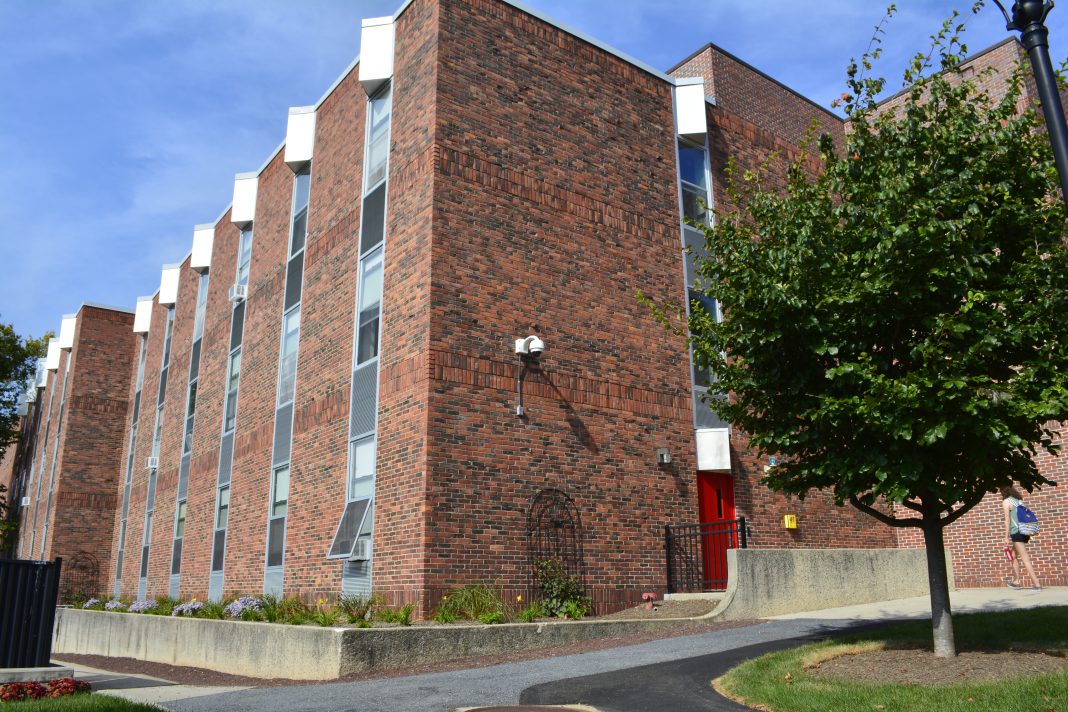Going to college can be very stressful: you’re in a new environment surrounded by unfamiliar faces. One especially stressful experience can be the transition to living in a dorm, where you can not control the environment around you.
Dorm stress comes in many forms from toxic roommates to fellow dorm mates who destroy or deface the space you are living in. When Prosser flooded in April, students were told to evacuate around midnight, leaving half finished homework and their comfy beds behind to spend hours wondering where they would be able to sleep that night. There are also other stressors in day-to-day dorm life that are more common than a sudden flooding.
When we spoke to first years living in Prosser, we asked them about their living conditions and what stressed them out. There were different responses that touched upon different factors of dorm life.
Watch this video to see what student’s in Prosser had to say.
In addition to external stressors, there are also personal factors that can lead to stress in dorm-life. Despite living in a building with dozens of other people, dorm life can be very lonely. “But you could feel lonely and sit in your dorm room with the door closed by yourself and your phone turned off,” said Michele Paules, licensed clinical social worker and director of student support at Muhlenberg. “And now you’re lonely and alone. So try to put yourself in spaces where others are, and I know that that’s a difficult thing to do, because loneliness can lead to increased feelings of anxiety, which can lead to increased feelings of vulnerability, which can lead to increased feelings of fear, and when we’re fearful, we really tend to close in and shut down because now it feels like we are in danger and have to protect ourselves,” Paules explains.
“I often say to students once you’re out of your dorm room, stay out for the day because your dorm room can become a black hole where you find yourself stuck just eating the mac and cheese in your room not going to the dining hall.”
Sleep is another factor that can cause stress for students. According to a national study of 55,000 college students, college students who don’t adopt good sleep habits are more likely to find themselves unable to handle their course work and less likely to reach their academic potential. The study also found that for each day of disturbance in sleep for a college student each week, the likelihood of dropping a course rose by 10% and the grade point average fell by 0.02.
When thinking about how to deal with these stressors, it may be helpful to focus on the things in the student’s power. This can include things like:
Maintaining social connections 👭
Participate in social activities: There are many student clubs and organizations on campus such as athletic organizations, community engagement organizations, and cultural and identity organizations. Take a look at the list of student organizations and find something that may interest you.
Maintaining healthy sleep habits 💤
Some healthy sleep habits tips form the American Academy of Sleep Medicine include:
- Setting a bedtime that is early enough that you get at least 7-8 hours of sleep
- Establish a relaxing bedtime routine
- Keeping a consistent sleep schedule
Communication is Key! 💬
Remember that people come from different backgrounds and may have different ideas about living in a communal space. Some tips from the JED Foundation, a mental health non-profit, about how to communicate with your roommate(s) include:
- Be proactive: create a plan for living with your roommate for things like cleaning and other responsibilities
- Be clear: establish ground rules about bringing friends over, sharing items, etc.
- Be up front: It may be uncomfortable at first, but speaking what is on your mind can help avoid a larger disagreement down the line.
Other tips include setting boundaries with your roommate regarding things like sleep schedules, personal space and study time. Communicating with your roommate or dorm mates if there is an issue, and if the issue persists, contact your RA.
Use the resources around you 📖
Muhlenberg has support for residential students such as:
- Special Housing Accommodations– the Office of Disability Services can help students who require accommodations based on medical conditions
- The Counseling Center– you can go to the counseling center if you’re struggling. They provide customized clinical care that is student, and can have in-person or remote sessions
- Each floor of the dorms has a Resident Advisor (RA) who is there to support you. Reach out to your RA if you have any questions or concerns, or need any advice.






















